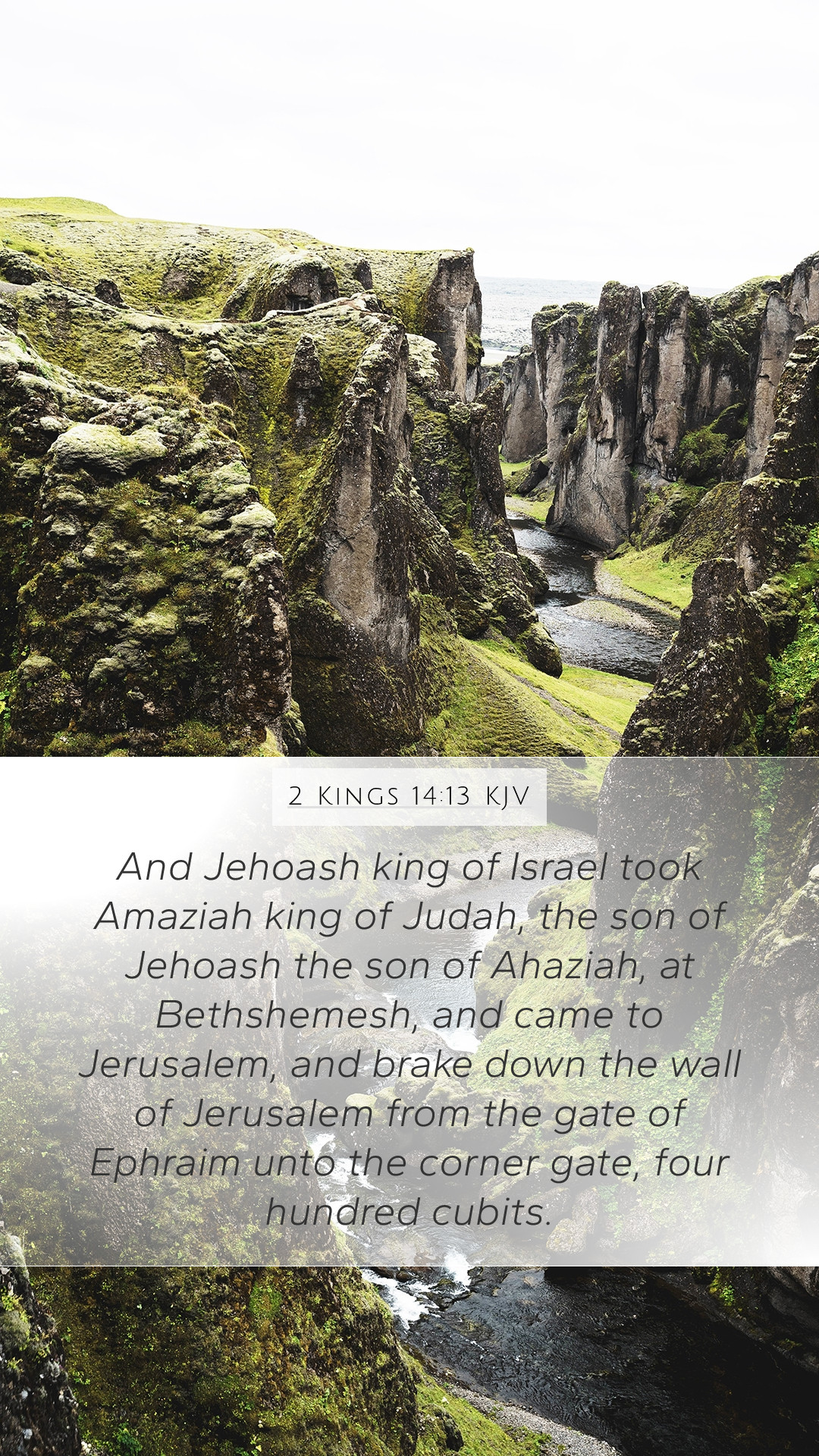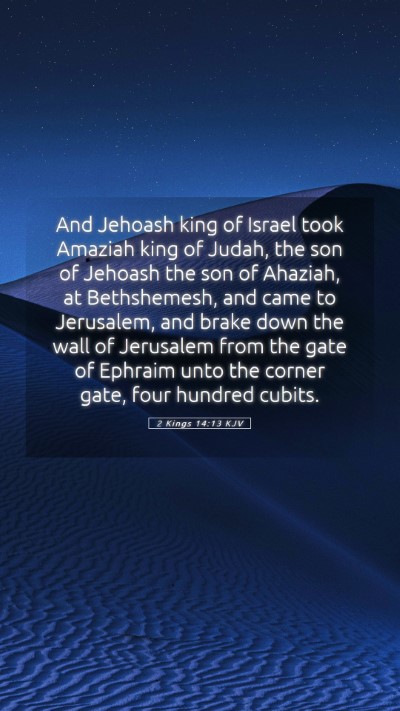Understanding 2 Kings 14:13
Verse: 2 Kings 14:13 – "And Jehoash king of Israel took Amaziah king of Judah, the son of Joash, at Beth-shemesh, and came to Jerusalem, and brake down the wall of Jerusalem from the gate of Ephraim unto the corner gate, four hundred cubits."
Overview and Context
This verse records a critical moment in the history of Israel and Judah, particularly focusing on the actions of Jehoash (or Joash) king of Israel towards Amaziah king of Judah. It is important to understand that these events took place during a tumultuous period in the Northern and Southern kingdoms of Israel.
Historical Background
King Amaziah of Judah had a complex reign filled with military aspirations and mixes of faithfulness and idolatry. Conversely, Jehoash of Israel, who had gained power and reputation, responded decisively to Amaziah's provocations.
Key Insights from Public Domain Commentaries
- Matthew Henry: Henry notes that this monumental event reveals the consequences of pride and overconfidence as Amaziah faced a superior military power in Jehoash. The demolishing of Jerusalem's walls signifies God's judgment and protection being lifted from His people.
- Albert Barnes: Barnes highlights that this act was both a punishment for Judah's sins and a demonstration of Israel's power. The walls of Jerusalem are not merely physical structures; they represent security and the divine favor that was now withdrawn.
- Adam Clarke: Clarke adds that the destruction of the wall from the gate of Ephraim to the corner gate illustrates the extent of punishment and humiliation inflicted on Jerusalem, which had once stood as a stronghold of God's people.
Biblical Themes
This verse is rich in themes such as:
- Judgment: The destruction of the wall signifies a broader theme of judgment against God's people due to their disobedience and idolatry.
- Power Struggle: It emphasizes the tensions and power dynamics between Israel and Judah during this period, pointing to the strife that arises from conflict and sin.
- Divine Sovereignty: Ultimately, it reflects God's control over the affairs of nations and His ability to use foreign powers to bring about His purposes.
Application of the Verse
The verse can be understood as a warning against pride and the necessity for humility before God. It also presents an opportunity for reflecting on how spiritual disobedience can lead to national or communal consequences.
In-depth Analysis and Cross References
For those engaging in Bible verse studies, examining 2 Kings 14:13 alongside related scriptures can deepen understanding:
- 2 Chronicles 25:22 - This account provides additional context regarding Amaziah's military engagements and his eventual defeat.
- Isaiah 10:5-6 - Discusses God’s use of Assyria as a rod of judgment; similar in how Jehoash served as an instrument of God's judgment against Judah.
- Jeremiah 39:8 - This verse illustrates the significance of Jerusalem’s walls when they were later breached, establishing a pattern of divine retribution against unfaithfulness.
Conclusion
In analyzing 2 Kings 14:13, it is evident the verse serves not only as a historical record but also offers profound Bible verse explanations that are relevant for our contemporary understanding of faithfulness to God. It challenges readers to examine their own lives in the light of scriptural truth and the overarching narrative of redemption.
Final Thoughts
The interpretation of scripture should lead to transformation. As we study verses like this, let us strive for a deeper relationship with God, utilizing tools such as Bible study materials, Bible study guides, and online Bible study resources to explore the richness of God's Word.


